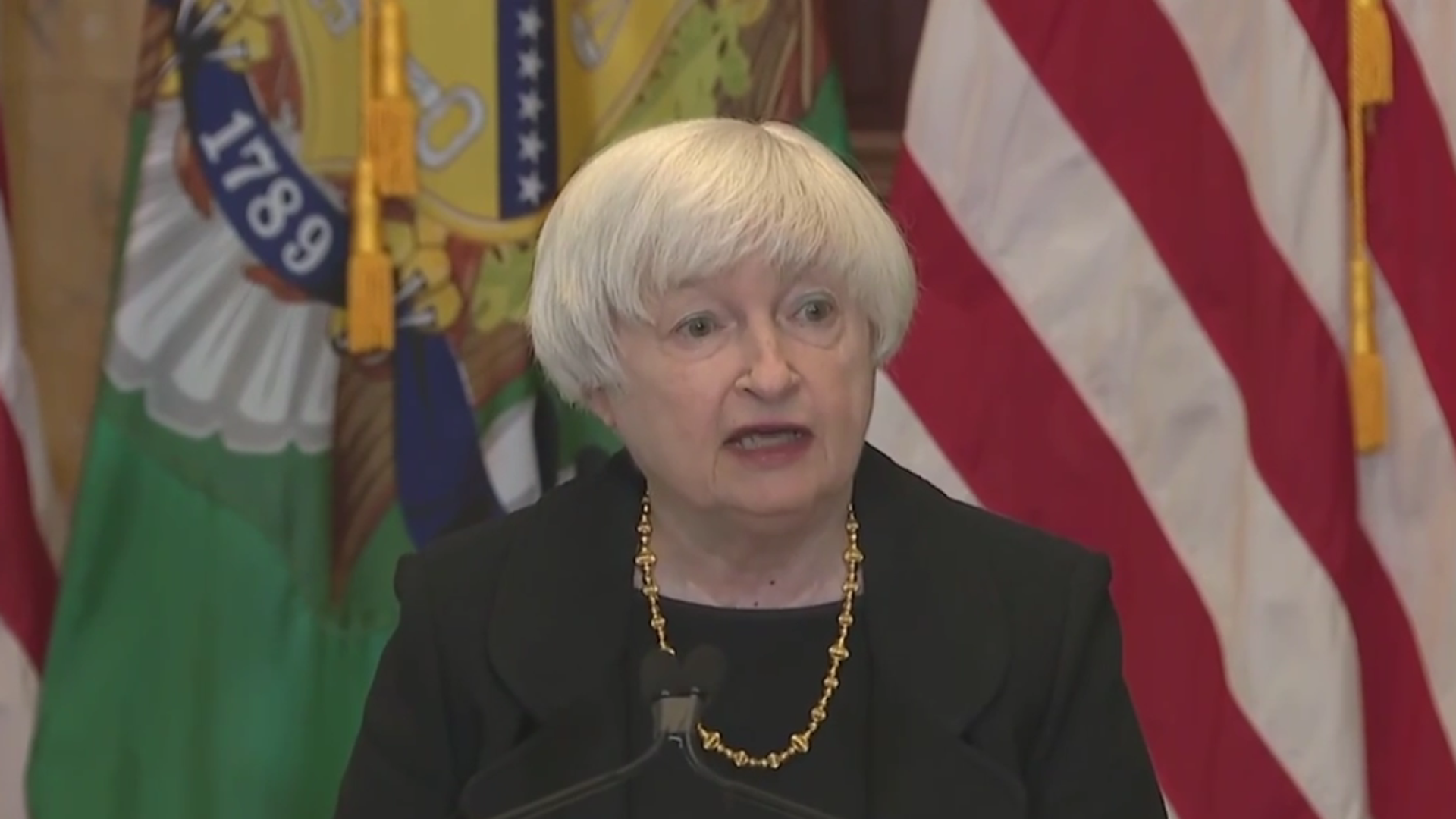US Treasury’s Yellen Warns Boycott of Russian Energy Could Hurt Europe More Than Moscow
20:50 GMT 21.04.2022 (Updated: 11:44 GMT 09.02.2023)
Subscribe
Before late February, Germany had been cool to US demands that the Nord Stream 2 pipeline be canceled, saying the gas it would bring to Europe was essential and dissenting from US plans to further antagonize Russia over Eastern European security issues. However, the NATO ally soon fell into line after a personal visit from US President Joe Biden.
US Treasury Secretary Janet Yellen praised European efforts to wean off Russian energy imports, but cautioned against the destructive effects of doing so too quickly. Her comments come as European leaders continue to debate boycotting Russian oil and gas products.
“Our objective from the outset has been to impose maximum pain on Russia while attempting to mitigate damage to the United States, to Europe, and throughout the global economy. And in the case of oil and natural gas, clearly Europe’s situation is different from that of the United States,” Yellen told reporters following a meeting with Ukrainian Prime Minister Denys Shmyhal and Finance Minister Sergiy Marchenko in Washington.
“Europe clearly needs to reduce its dependence on Russia with respect to energy, but we need to be careful when we think about a complete European ban on, say, oil imports,” Yellen said.
“We want to harm Russia, that would clearly raise global oil prices, it would have a damaging impact on Europe and on other parts of the world. And, counterintuitively, it could actually have very little negative impact on Russia, because although Russia might export less, the price it gets for its exports would go up,” she added.
Last month, the US announced a total boycott of Russian petroleum products, amounting to about 672,000 barrels of oil a day, or 8% of US oil imports, according to US Energy Information Agency data. The EU also announced it would jointly buy and store gas, hydrogen and liquified natural gas to help it reduce dependence on imports from Russia. However, an EU boycott has produced considerable discord in the bloc, as Russia supplies the 27 member states with 45% of their gas imports and 25% of their oil imports.
Petroleum and gasoline prices were already rising before the West decided to retaliate against Russia for launching a special “neutralization” operation in Ukraine in late February, but quickly spiked following the onset of US sanctions designed to crush the core of Russia’s economy, with Brent Crude briefly trading at $130 a barrel.
International petroleum prices remained high on Thursday, with Brent Crude trading at $107.8 per barrel, and the national average price for a gallon of gasoline in the US was $4.12, despite Biden releasing a large portion of the Strategic Petroleum Reserve.
On Tuesday, Leonhard Birnbaum, the CEO of German energy company E.ON, blasted plans to follow suit in Europe.
"I think this is wrong ... Such a move would not only hit Germany hard, but Europe would also face a huge problem. For example, Slovakia is completely dependent on Russian gas, and countries like the Czech Republic and Austria receive most of their gas from Russia. In many other EU countries, it accounts for at least a significant share," Birnbaum told German newspaper Handelsblatt.
Berlin has said it will consider cutting Russian oil under specific conditions, with German Foreign Minister Annalena Baerbock saying on Wednesday that "oil imports will be halved by the summer and will be at zero by the end of the year."
According to Politico, any EU boycott will differentiate between different grades of Russian oil and have to take into account Europe’s long-standing orientation towards Russian oil. For example, most European oil refineries are tooled to process Urals Crude, a heavy oil with a high sulfur content pumped in Russia’s Urals mountains and Volga River valley regions. Russia also exports other varieties, including heavy fuel oil and vacuum gas oil, which supplies 10% of European diesel fuel - a touchy subject heading into the summer travel months.
An EU diplomat told Politico that “If the ban consists of too many exceptions, the rest of the world will see right through it.”
The ban could produce more problems for European refineries than for Moscow, as substitutes for Urals Crude are few and far between, according to oil and gas analytics firm Vortexa.
Bloomberg noted in late March that Urals Crude exports to Europe had already declined by about 25% from the previous year, with more Russian exports going to Asia instead. That comes two months after Russian state-owned gas firm Rosneft signed a 10-year agreement with China National Petroleum Corp (CNPC) to ship 100 million metric tons, or 200,821 barrels per day of oil to refineries in northwestern China.

